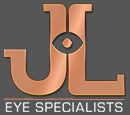Aging with Clarity: Proactive Steps to Maintain Optimal Vision

Maintaining optimal vision as we age requires a proactive approach. As with many aspects of health, prevention and early detection are key. One common age-related vision issue is cataracts, which occur when the lens in the eye becomes cloudy. Usually, the lens should be clear and transparent, so getting checked for cataracts might be a good idea when clouding occurs.
In this blog article, we will discuss the importance of early detection and prevention of cataracts and some tips for maintaining healthy eyesight.
Book a consultation with Dr Jimmy Lim today.
Preserving Eye Health
Regular eye examinations are crucial to detect vision problems early, including cataracts. Many eye diseases, such as glaucoma and cataracts, may not show symptoms until significant damage has occurred. Adults should have a comprehensive eye exam at least once every two years and annually after age 60.
Likewise, protection from UV radiation should be a regular practice. Prolonged exposure to UV rays can increase the risk of cataracts and macular degeneration. Hence, always wear sunglasses with 100% UV protection and a wide-brimmed hat outdoors.
Regularly monitor and manage chronic conditions, including diabetes and high blood pressure, which can impact vision. Diabetic patients, especially, should have annual diabetic retinopathy screenings. Knowing your family’s eye health history is good since many eye diseases are hereditary, and discussing potential risks with your ophthalmologist.
Limit your digital screen time to avoid eye strain, dryness, and blurred vision. Follow the 20-20-20 rule: every 20 minutes, take a 20-second break and look at something 20 feet away. Ensure that screens are at eye level and that lighting conditions reduce glare and strain.
A healthy diet and nutrition can also help us maintain good vision. Consume foods rich in antioxidants like vitamins C and E and minerals like zinc. Omega-3 fatty acids, found in fish, can also help prevent macular degeneration. Leafy green vegetables like spinach and kale are rich in lutein and zeaxanthin, which are beneficial for eye health.
Additionally, drink plenty of water throughout the day, as adequate hydration is vital for maintaining the health of the eye’s tear film. Finally, exercise regularly — walking, cycling, or any form of exercise. Physical activity increases blood circulation, which improves oxygen levels in the eyes and aids in the removal of toxins. And if you haven’t yet, quit smoking now! Smoking can increase the risk of cataracts, macular degeneration, and optic nerve damage.
.
Read: 10 Eye Care Tips You Want To Know
Cataract Meaning & Implications
Cataract starts when the lens becomes thicker and denser. It happens when the natural proteins and fibres in the lens build up. These clumps of proteins and fibres block or scatter light through the retina—making your vision blurry or cloudy. The condition affects your eye, making driving, reading, watching TV, and even recognizing facial expressions challenging.
We typically associate cataracts with aging, but it can also develop at any point in a person’s lifetime. Some children are born with it due to the malformation of the lens during pregnancy. Cataracts that develop after birth are considered acquired and can stem from medical conditions (e.g., diabetes), eye injuries, and long-term steroid use.
Learn More About: Cataract Diagnostics and Management at Our Clinic
Cataract Symptoms
Pain is not usually associated with cataracts. Instead, you would experience symptoms such as double or blurred vision, clouding of the lens, desaturated colours, and halo or glare around lights. As the condition progresses, you might expect night vision problems, brighter light for reading and other activities, and sudden refractive changes for eyeglasses or contact lenses.
Cataract formation often starts as cloudy, blurry, or dimmed vision. As the condition develops, other symptoms begin to surface, such as:
- poor night vision
- double vision
- colours appearing dull or faded
- halos around lights
- distortion of vision
- frequent need to change eyeglasses due to increasing nearsightedness
At first, the cloudiness in your vision may only affect a small portion of the lens, so you may not even notice the difference. But as the cataract grows denser, the lens becomes more cloudy, thus distorting the light that passes through it. Your vision may be challenging when carrying out your daily activities.
.
Cataract Removal
In most cases, surgery is recommended when the symptoms of your cataract have begun to interfere with your daily activities and overall quality of life. It’s also advised when eyeglasses and contact lenses no longer work for you.
In the past, it was believed cataracts needed to be ‘ripe’ or advanced before surgery. While there is no harm in delaying cataract surgery for some time, you shouldn’t wait too long, either. As a cataract “hyper-matures,” it hardens and becomes difficult to remove, posing a higher risk of surgical complications. With advanced modern technology, patients can opt for surgery when their vision is affected.
Though all surgical procedures have some risk, cataract surgery is very low-risk, and only a tiny percentage of patients will experience complications. As long as all post-operative precautions are followed, most patients recover. Additionally, cataract surgery is a day procedure, which means you can go home the same day.
One of the perks of cataract surgery is the ability to correct refractive problems, such as nearsightedness, farsightedness, and astigmatism. The surgeon will replace your natural lens with an intraocular lens (IOL). You can choose from a variety of IOLs, depending on your needs. Some IOLs even allow you never to use prescription glasses again.
Once done with the cataract surgery, here’s what you can expect:
.
Cataract Surgery Clinic Singapore
There’s no other way to reverse or cure cataracts besides surgery. However, the doctor can suggest preventive measures to slow cataract progression in its early stage. However, if your vision is severely affected, surgery may be recommended. These treatments are standard for all types of cataracts unless contraindications exist.
At our clinic, we perform cataract removal procedures such as Phacoemulsification and Extracapsular cataract extraction for different severity of cataracts. We offer a variety of intraocular lenses to correct myopia (short-sightedness), hyperopia (farsightedness), astigmatism, and presbyopia (old-sightedness).
.
If you want to know more about how it works, please schedule a consultation with us today. Our medical director, Dr Jimmy Lim at JL Eye Specialists, will help tailor your treatment plan.
Related Posts:
Relevant Services:
Relevant Services:
Our Doctor

DR. JIMMY LIM
Gleneagles Medical Centre
6 Napier Road #07-10,
Singapore 258499
Phone: +65 6258 8966
Fax: +65 6258 8766


